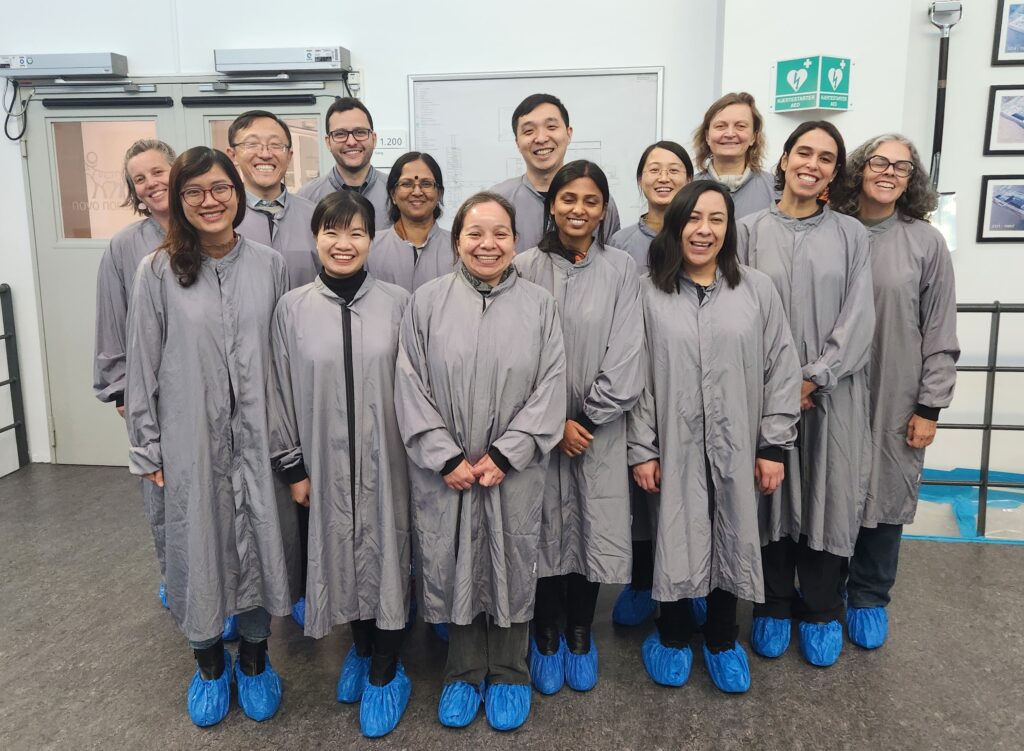How to ensure efficient and transparent approval processes for pharmaceuticals
31-01-24

Many of us take for granted that painkillers, cough syrups, and even medications for complex illnesses are readily available. Rarely do any of us pause to consider the intricate journey these drugs undertake before reaching our hands. Twenty-five professionals from medicine regulatory bodies in China, Vietnam, Mexico, Brazil, and India have seen how Denmark goes about approving medicine.
The process leading to the release of medicine for human use is a long and intricate one, marked by meticulous development, stringent testing and, not least, rigorous regulatory procedures. All over the world, professionals in the pharmaceutical industry are responsible for ensuring that every single medicinal drug undergoes tests that comply with both international and national regulations for assessing and approving drugs.
Denmark is internationally recognized for its streamlined and transparent pharmaceutical approval processes and this was the background for welcoming 25 professionals from medicine regulatory bodies in China, Vietnam, Mexico, Brazil and India to a two-week learning programme in January 2024 hosted by Danida Fellowship Centre. Read more about the programme Efficient and Transparent Approval Processes for Pharmaceuticals
Besides lectures in topics such as “Global pharmaceutical policy” and “Access to medicines focusing on ethics”, the programme included a whole day with presentations by key staff at the Danish Medicines Agency on the agency’s various work approaches and regulatory processes.
My key lesson from Denmark is that the entire medicine approval system is designed to ensure equity based on patient needs so that no one is disadvantaged and cannot get access to needed medicin. This is significant, because it ensures that medicines benefit a broader population and address a variety of patient groups beyond just general needs, said Sunti Chouhary, a drug inspector at India’s Central Drugs Standard Control Organisation after the day spent at the Danish Medicines Agency.
A field visit to Novo Nordisk, where the participants visited the production site in Hillerød, was also part of the programme.
The digitalized processes at Novo Nordisk, both in the production and approval processes, showcase the future of medicine manufacturing, and offer a glimpse into how the approval processes of medicine will be even more digitized than they are already, said Martha Ochoa Luna, Cofepris, Mexico after the Novo Nordisk visit.
Many of the participants singled out the extensive collaboration they had witnessed among the various stakeholders involved in the medicine approval process as the factor that speeded up verification, enhanced safety, and ultimately improved efficiency.
On the final day of the two-week learning programme, the six country groups presented their action plans for how they intended to use and implement the lessons learned in Denmark. Vietnam, for example, focused on “increasing the availability of quality-assured medicines for unmet clinical needs”.
While each country’s plans varied based on their unique challenges in the medicine approval processes, the groups unanimously agreed that implementing change takes time and, most importantly, requires robust communication to share their newfound knowledge. Lene Jørgensen, a lecturer in the Department of Pharmacy at the University of Copenhagen, was reassuring.
If your managers selected you to attend this programme, they undoubtedly want to learn about the insights you have gained and what you can bring back to them, she said.
The University of Copenhagen’s department of Pharmacy planned and facilitated the learning programme for Danida Fellowship Centre.
The participants selected for the programme had direct ties to Denmark’s Strategic Sector Cooperation (SSC) with China, Vietnam, Mexico, Brazil, and India. The national health authorities in each of the countries actively collaborate with Denmark’s health authorities as part of the health component of the sector cooperation programme. The strategic focus is to contribute to strengthening collective health-systems in the five countries by addressing critical capacity gaps and needs. There are three goals:
- Coherent, efficient and quality healthcare services for non-communicable diseases
- Regulated pharmaceuticals and medical devices
- Strategies for combatting health threats from infectious diseases and AMR
Watch the videos about participants takeaways
Ms Raquel Marcolongo, ANVISA, Brazil
